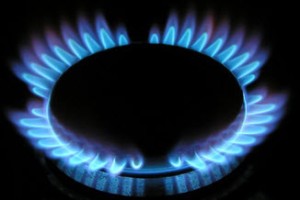Why the Winter Fuel Payment scheme isn’t fair on those who need it most
Last year may have been among the warmest years on record but that hasn’t affected the growing pressure on Government to reform the Winter Fuel Payment scheme and current energy efficiency measures.
 According to Age UK, one older person dies every seven minutes from the cold and many more become seriously ill as a result of not being able to afford to heat their homes properly. Despite throwing millions of pounds at the problem each year, neither the Government’s winter fuel scheme nor Ofgem’s Energy Company Obligation (ECO) have been able to combat this horrific trend.
According to Age UK, one older person dies every seven minutes from the cold and many more become seriously ill as a result of not being able to afford to heat their homes properly. Despite throwing millions of pounds at the problem each year, neither the Government’s winter fuel scheme nor Ofgem’s Energy Company Obligation (ECO) have been able to combat this horrific trend.
New findings from Policy Exchange have shown that fuel cost is not a problem endemic to older people living on their own and that it is of a much wider scale than previously thought. In its report ‘Warmer Homes: Improving fuel poverty and energy efficiency in the UK’, the think tank suggested that of the 2.3m homes currently in fuel poverty, some 1.1m of those are working families.
It also found that only 10% of Winter Fuel Payment recipients were technically living in ‘fuel poverty’ and that an opt-in scheme had to be introduced that would save some £400m, which could be reallocated to those who needed it most. Government strategy on energy efficiency in general has fallen under a lot of scrutiny amid lobbyist claims that subsidies are fundamentally flawed. ‘Warmer Homes’ found that only 33% of fuel poverty funding actually goes to help those people who need it most and suggested that an opt-in scheme would work better. It said the focus of the Energy Company Obligation (ECO) scheme needed to be shifted onto fuel-poor households, which would raise an additional £375m-a-year to allocate to fuel poor households.
Last year the Department for Work and Pensions admitted to journalists that it is unsure how much in fuel payments (usually £200 – £300) is returned but around 300 citizens had decided to who feel they do not need it, spurred by one good-spirited person who wrote to the Chancellor returning her payment. For many people, not being able to adequately heat their homes severely affects their ability to live independently and be a key factor in deciding whether they go into residential care before they may feel ready to do so.
There is also a growing debate on whether ex-pats living on warmer climates should get winter fuel payments. It is currently set to end as part of the shake-up that involves using an average temperature test based on whether the country is hotter than the warmest parts of the UK.
Energy efficiency should be infrastructure priority
In 2014, the Government reviewed the issue of fuel poverty and set a new target for all 2.3m households that are technically fuel-poor and to get them to a Level C of fuel efficiency by 2030.
Richard Howard, Head of Environment and Energy at Policy Exchange criticised the Government’s current efforts and said: “Based on current policies, the Government is going to fall well short of this target. Current Government spending amounts to around £500m per year in England in upgrading the energy efficiency of fuel-poor homes. But actually the required level of spending is around £1.2bn, so there’s a funding gap of around £700m per year.”
It is clear that winter fuel payments are a critical support for many older people living in fuel poverty but much more is needed to ensure the scheme helps those people who need it most.
Credits – CARING HOMES
“For those of you out their with blogs, on Twitter of Facebook etc etc, keep highlighting and pushing these issues as it’s all we have to indirectly get balance and fairness in our society”



